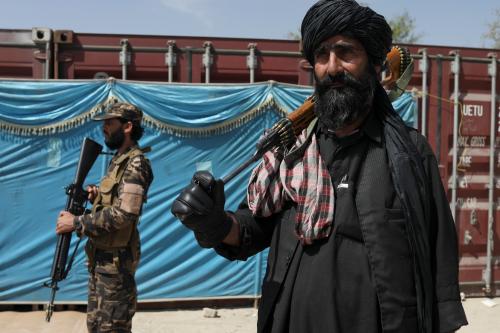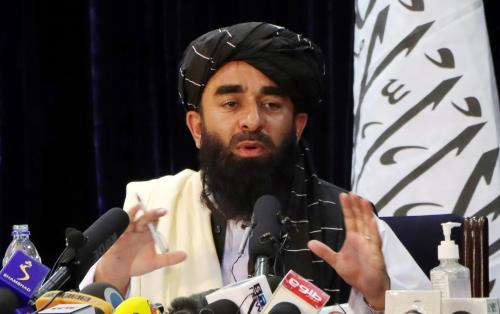Mr. Chairman and other distinguished Members of the Committee, thank you for this opportunity to testify today on promoting viable peace and stability in Lebanon. I commend the Committee’s focus on this issue. Lebanon’s future is inescapably tied with the broader fate of the Middle East. It is in America’s interests, and also in neighboring Israel’s interest, to see Lebanon succeed as a democratic, multi-ethnic and prosperous state. If Lebanon remains unstable, it will contribute to the destabilization of the region and sink the hope of the Cedar Revolution for a free and independent Lebanon.
My testimony is based on a trip to Lebanon completed on September 11. I had the benefit of working with Ashraf Ghani, former Minister of Finance in Afghanistan and one of the world’s foremost experts on political and economic transition. We went to Lebanon under the auspices of the Brookings Institution and in the spirit of Brookings’ commitment to contribute to critical public policy issues. We conducted dozens of interviews with the Lebanese government, donors, NGOs, the private sector, diplomatic community, and various UN offices, including UNIFIL.
I left Lebanon impressed by the talent of its people. I left cautious and wary of the political complexity and unpredictability. The Lebanese resent the way in which the war and blockade shattered their lives — physically, emotionally and economically. War grasped from Lebanon yet another chance at normalcy just when the economy was growing at 6 percent, tourism was booming and the wounds of the civil war had begun to heal. But there is also a surprising opportunity in the unity the war has engendered. The Lebanese people stood together primarily as Lebanese, and if this sense of unity can be tapped before new hardships dominate people’s lives, Lebanon has the chance to create a new reality in the Middle East. Hence, there is an urgency to support Lebanon’s efforts now — when there is a real chance for Lebanon to succeed.
Lebanon’s reconstruction also cannot be untangled from the fate of Hezbollah. Arguments abound on whether Hezbollah was strengthened or weakened by the war. Both are undoubtedly true. Hezbollah lost combatants and its weapons arsenal is depleted. Its image as a resistance force was burnished. But the real test affecting Hezbollah’s future — and by extension the future of the Lebanese state — is whether Hezbollah or the Lebanese government are seen as restoring security and economic life to devastated Shiite areas.
There has been public debate in the United States over whether U.S. assistance should go to the south and whether it might reinforce Hezbollah. There is no such debate among Lebanese actors. Lebanese NGOs, the government, private sector and parliamentarians were adamant in our discussions that the south must be part of any recovery strategy. Some stressed that failure to reach the south after the last civil war gave no alternative to Hezbollah’s development as a state within a state. NGOs indicated that they have options to work with groups other than Hezbollah. Alternatively, ignoring the south would entrench a Shiite view that they have no place in Lebanon’s politics and increase the mid-term prospects for political turmoil. The practical options are straightforward: mitigate the risk of benefiting Hezbollah by using international NGOs as a short-term means to control and disburse resources, or block such assistance and make clear that neither the Lebanese government nor the international community has an interest in Lebanon’s Shiites. The latter will simply institutionalize instability.


Commentary
TestimonyRestoring Confidence in Lebanon’s Future
September 13, 2006